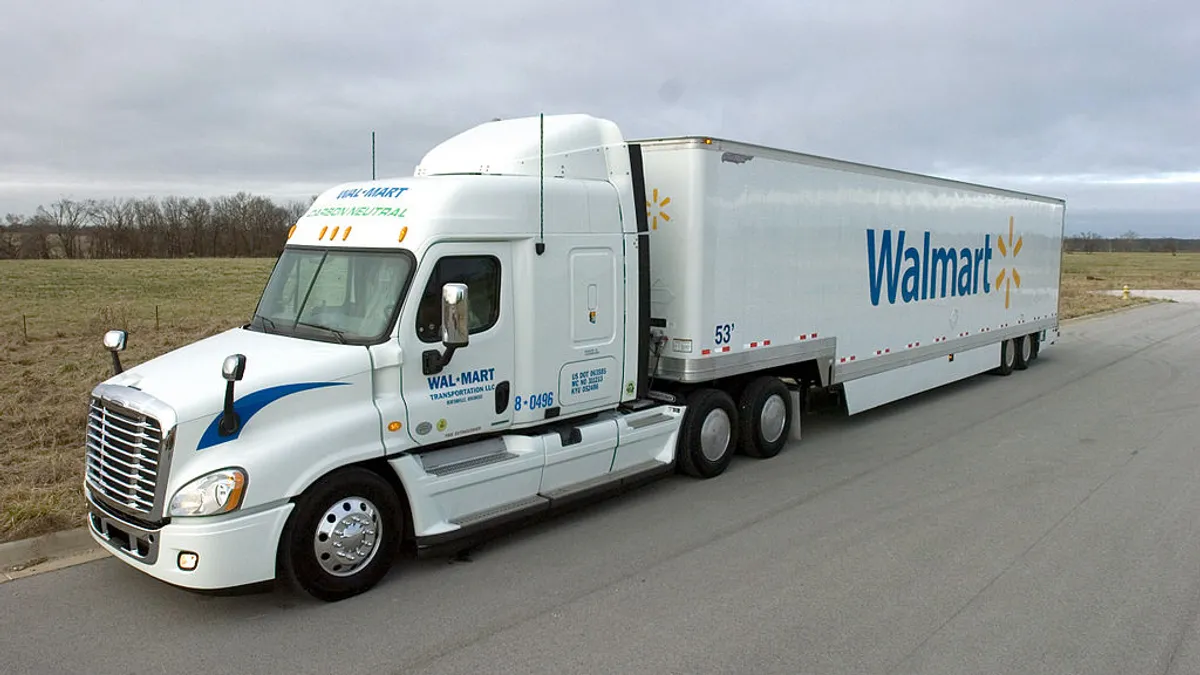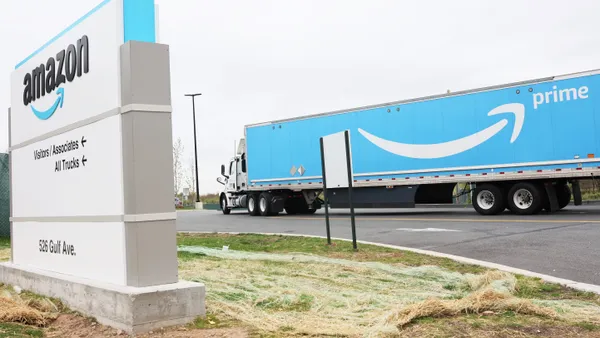Dive Brief:
- Extended dwell time for trucks jumped significantly in March, according to analysis by FourKites. Compared to February, March witnessed a 24% increase in late loads due to extended dwell times, according to a web post by Vivek Vaid, the company's CTO. Such delays have repercussions up and down the supply chain, Vaid wrote.
- Re-entry delays jumped more, according to Vaid and his company's platform data. Drivers can be delayed when they show up on time to their destinations. "When a facility is overloaded with simultaneous deliveries, drivers are turned away and sent to a designated wait area," Vaid wrote. "Once things clear up, drivers return to the facility to be unloaded. In March, drivers were turned away 36% more frequently than in February."
- During the COVID-19 crisis, shippers' best efforts at planning are falling short, with unachievable appointment times up 18% in March compared to February, Vaid said. Guidance on scheduled appointment times, while critical to efficient operations in normal times, is "proving futile at a time when facilities are instead focusing on execution and taking shipments on a first-come, first-served basis," Vaid wrote.
Dive Insight:
Despite smoother roads and less congestion, truck drivers are facing delays largely because of what Vaid said were huge spikes in demand for food and packaged goods. Still, Vaid said the U.S. supply chain, in particular, has proven itself capable of meeting that demand.
Referring to strains on the trucking system, Derek Leathers, CEO of Werner Enterprises, speaking to Bloomberg, said, "We've never had anything of this magnitude and this widespread. But we are open for business, and we need to stay that way."
The slowdowns at warehouses and elsewhere are not unique to the United States. Bloomberg reports long lines at the German-Polish border, as "just about everywhere, drivers' access to critical services has been reduced or even cut off. It's getting harder to find places to eat with restaurants shut down and rigs too big to go through drive-thru lanes. A decent place to sleep, shower or even use a clean toilet is becoming difficult to track down."
The decline in car traffic has led the average shipment times to run 2% faster in the United States and Europe, "likely a reflection of decreased traffic on the roads, as well as the recently enacted emergency waiver governing trucking hours of service (HOS) regulations," Vaid said.
The American Transportation Research Institute (ATRI) also noted a decline in highway congestion, reporting "unprecedented" truck movement, particularly through some of the nation's tightest bottlenecks, late last month. With less car traffic on the roads, some trucks traveled at more than double the speed at which they usually move during rush hour at bottlenecks, including at "Spaghetti Junction," the infamous intersection of I-85 and I-285 in Atlanta.
"Spaghetti Junction is typical of what we've seen across the country, especially in areas hit hard by the virus and subject to quarantines and lockdowns," said Rebecca Brewster, ATRI president and COO, said in the report.













